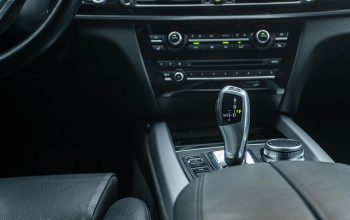Vehicle history reports are essential tools for car buyers to protect themselves from fraud. These reports reveal a car's manufacturing, ownership, maintenance, and accidents/insurance claims, exposing odometer tampering and hidden issues. By conducting free VIN checks and integrating paid services, buyers can access detailed data on insurance claims, accidents, and maintenance records, ensuring informed decisions and avoiding costly surprises or fraudulent practices in the used car market.
Buying a car is an exhilarating experience, but ensuring its safety and reliability requires diligence. Recent trends reveal a surge in fraudulent practices like odometer tampering, leaving unsuspecting buyers with costly repairs and hidden risks. This article equips prospective car owners with the knowledge to navigate these challenges. We delve into vehicle history reports, exposing common scams, demystifying free vs. paid VIN checks, and emphasizing the importance of pre-purchase due diligence. Armed with this information, you’ll make informed choices, protecting your investment and driving with peace of mind.
- Understanding Vehicle History Reports
- Common Fraudulent Practices in Car Sales
- The Role of Odometer Tampering
- How to Use a Free VIN Check Effectively
- Integrating Paid Services for Accurate Results
- Uncovering Insurance Claims and Maintenance Records
- Protecting Your Investment: Pre-Purchase Due Diligence
Understanding Vehicle History Reports

Vehicle history reports are detailed documents that offer a comprehensive overview of a car’s past, from its manufacturing to its current state. These reports include crucial information like accident history, ownership changes, maintenance records, and whether the vehicle has been involved in any insurance claims or accidents serious enough to result in a salvage title. A salvage title indicates that a vehicle has sustained significant damage and was declared unfit for safe operation after an accident, requiring extensive repairs.
Understanding these historical details is essential as they can significantly impact your decision to purchase a car. For instance, knowledge of odometer tampering—a fraudulent practice where the mileage on a car’s odometer is illegally altered—helps buyers avoid making a costly mistake. By accessing comprehensive vehicle history reports, potential buyers can make informed decisions and protect themselves from scams, ensuring they’re getting a safe and reliable vehicle for their investment.
Common Fraudulent Practices in Car Sales

In the car sales industry, various fraudulent practices have become increasingly common, posing significant risks to unsuspecting buyers. One of the most prevalent and insidious is odometer tampering. Scammers manipulate the odometer readings to make a vehicle appear younger and in better condition than it actually is. This deceptive tactic can cost buyers thousands of dollars by inflating the car’s value. Another emerging trend involves falsifying maintenance records, hiding evidence of previous accidents or significant repairs.
Additionally, some unscrupulous dealers might use altered or forged vehicle history reports to hide a car’s true past. These fraudulent practices make it crucial for buyers to be vigilant and proactive in their research. A thorough inspection and verification process are essential to protect against such deceptions, ensuring that buyers make informed decisions when purchasing a vehicle.
The Role of Odometer Tampering

Odometer tampering is a deceptive practice where fraudsters manipulate a vehicle’s odometer to show a lower mileage than it actually has. This fraudulent act is a growing concern in the automotive industry as it can have severe implications for buyers. By altering the mileage, scammers attempt to make a car appear more valuable and desirable, luring unsuspecting individuals into making significant financial decisions based on false information. Unfortunately, once the buyer discovers the manipulation, they may be left with a vehicle that could have hidden issues or reduced resale value due to the compromised odometer.
This trend poses a significant risk to consumers, especially when buying used cars. It’s a subtle yet powerful tactic that can cost buyers thousands of dollars and leave them with an unreliable vehicle. To combat this issue, auto experts emphasize the importance of thorough research. A comprehensive vehicle history report is a buyer’s best defense against odometer tampering and other fraudulent practices, ensuring they make informed decisions when purchasing a car.
How to Use a Free VIN Check Effectively

When utilizing a free Vehicle Identification Number (VIN) check, start by obtaining the unique 17-character code from your vehicle. This can usually be found on the vehicle’s registration documents or on a sticker inside the driver’s door jamb. Input this VIN into reputable online platforms that offer free checks. These services will then pull data from various databases to provide you with basic information, including the car’s make, model, year, and current owner. While free checks offer a good starting point, they may not reveal all relevant details due to varying database coverage.
To maximize the effectiveness of your free VIN check, combine it with paid services known for their comprehensive data access. For an additional fee, these services can uncover more in-depth information, such as accident history, outstanding loans, and maintenance records, which are crucial for making informed decisions. Remember, while a free check gives you a glimpse, paying for a complete report ensures you’re fully aware of any potential issues or red flags associated with the vehicle’s past, thus protecting your investment.
Integrating Paid Services for Accurate Results

When considering a used car purchase, integrating paid vehicle history services into your research is crucial for achieving accurate and comprehensive results. While free VIN checks offer a basic starting point, they often lack critical information and may not be reliable indicators of a vehicle’s true condition. Paid services, on the other hand, provide in-depth insights, including detailed maintenance records, insurance claims history, and any reported accidents or damages.
These services cross-reference data from various sources, ensuring a more holistic view of the car’s past. By combining a free initial check with a paid service, savvy buyers can make informed decisions, avoiding potential pitfalls like odometer tampering or undisclosed repair work. This dual approach is recommended by experts to safeguard against fraudulent practices and ensure the best possible outcome in what can be an emotional and expensive purchase.
Uncovering Insurance Claims and Maintenance Records

A comprehensive vehicle history report delves into more than just accident records. It provides a detailed look at insurance claims, revealing any past accidents or damage that may have been repaired. This transparency is crucial as hidden damages can be a significant financial burden for an unsuspecting buyer. Moreover, the report includes maintenance records, offering insight into how well the car has been cared for over its lifetime. Regular servicing and up-to-date maintenance are indicators of a vehicle’s overall health and reliability.
Accessing this information is essential in making an informed decision when purchasing a used car. It allows buyers to assess potential risks and negotiate prices based on the vehicle’s history, ensuring they aren’t left with unexpected repair costs down the line.
Protecting Your Investment: Pre-Purchase Due Diligence

When buying a car, protecting your investment starts with thorough pre-purchase due diligence. Beyond examining the vehicle’s exterior and interior condition, it’s crucial to delve into its history. A simple free VIN check is just the beginning; it can alert you to basic information but may miss critical details. For comprehensive peace of mind, consider a paid vehicle history report that delves deeper, uncovering potential red flags like accident history, outstanding recalls, and insurance claims.
This proactive approach ensures you’re not caught off guard by hidden issues. By understanding the car’s past, you can make an informed decision, negotiating with confidence or avoiding what could be a costly mistake. Remember, a little extra effort before purchasing can save you significant time and money in the long run.
Buying a car should be an exciting journey, not a gamble. By understanding vehicle history reports, recognizing common fraudulent practices like odometer tampering, and utilizing both free and paid VIN check services, you gain valuable insights into a car’s past. This knowledge equips you to make informed decisions, ensuring you protect your investment and drive with confidence. Remember, transparency in auto history is key to avoiding costly surprises down the road.



